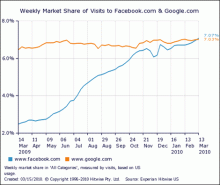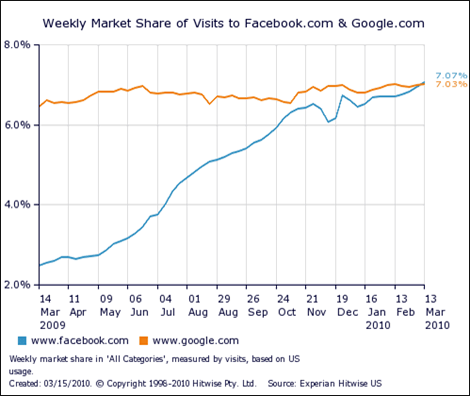Advisor Marketing: Magazine Advertising

Your city probably has one or more high-gloss magazines targeting the affluent people in your region. Should you advertise in your region’s magazine? First, you must confirm that the readership of the magazine matches the demographics of your targeted clientele. Does the typical reader sound like someone you’d like to have sit across your desk?
One such magazine in Southern California is South Coast magazine, self-described as the “magazine of the California Riviera.” The magazine states “South Coast readers live in households with a median property value of approximately $950,000 with a median age of 41.5, and a median income of approximately $164,000. Our readers are predominately young, affluent, active, educated, well-traveled professionals, who seek challenge in their lives.”
Home value and income levels are high yet the median age is 41.5. Wonderful if you target professionals. Not so great if you target retirees needing estate planning.
The advantage of magazine ads over newspaper advertising is that magazines often will sit around for a month or two before being tossed in the trash. Newspapers come daily and are quickly tossed. These high-gloss magazines are designed to look good sitting on your coffee table. Which increases the chances of your ad being seen.
This advantage becomes a disadvantage if your ad is a dud. You’ll need to live with your ad for a whole month before you can tweak the headline or change the name of the free report.
What should your ad say? Resist the temptation to create a glitzy image ad showing how wonderful you are. Your ad should offer something of real value to get readers to contact your office. You need their contact information so you can follow-up with them later with your newsletter or e-zine. You could offer a free report on retirement planning pitfalls or an invitation to an upcoming community seminar.
Should you try a one-time test? Someone once said the most popular form of gambling for small businesses is advertising. This is especially true of magazine advertising. Don’t expect to make a big splash with a big full-page ad run one-time. Even a proven ad in a new publication may need time to work. For monthly magazines budget for 3 months and a weekly magazine budget for 4 weeks minimum to give the ad a fair test. Far better to run a quarter-page ad 3 times than a full-page ad just once.
What size ad should you start with? Many magazines have active classified sections in the back of the magazine. You can start with a small classified ad offering a free report. The ad won’t cost much and can easily pay for itself. Gradually increase the size of the ad as long as the ad is paying for itself. You can add a bigger headline and a splash of color to a small display ad to get more attention. Go to a quarter page ad and keep tracking the results. A half-page ad may pull better than a full-page ad. You won’t know if you don’t track the results.
Who should design your ad? Be careful if the magazine offers to design your ad at no cost. The graphic designers probably aren’t skilled in copywriting. Plus they have a tendency to try to design a beautiful ad versus an effective ad. You don’t want to win a design award…you want to win new clients. You want the ad to pay for itself.
Want to get free advertising? Take a look at the magazine and see if they have a financial columnist or not. Offer to write a monthly column in exchange for some display advertising. How much advertising should you ask for? Let’s assume that your hourly rate is $175 per hour and it takes you an average of 3 hours to write an article. You value your articles at $500 each so ask for twice that in free advertising in lieu of payment. If $1000 buys a quarter page ad, you could do a half-page ad every other month.
Magazine ads should be considered when you know the magazine’s readers match your targeted niche, you have proven ads with tested headlines and offers, and you have the budget to test an ad for several issues in a row.
Advisor Marketing Success OR “You’re Fired!”

This Wall Street Journal article points out that many Regional Broker/Dealers are raising minimum production amounts. If you’re feeling some heat from your broker/dealer, you have two choices. Improve your marketing to raise your production…or fire your BD! After the article you can find ideas on both of these choices.
Regionals Raise Broker Production Minimums
By Kristen McNamara
The barrier to entry for would-be brokers at some regional firms is getting higher. And brokers already working at those firms are finding they have higher hurdles to clear, too.Financial advisers who move to regional broker-dealers from large Wall Street institutions often generate more in fees and commissions than regional incumbents. Some of these new arrivals want to work at smaller organizations while others are pushed out by wirehouses which are trying to shed what are, for them, lower producers.
The amount of client money wirehouse brokers oversee, and their corresponding pay, is generally much higher than that of the regional brokers. That means low-producing wirehouse brokers can still generate more revenue than the average regional broker.
The average amount of money overseen by a wirehouse broker was $71.9 million at the end of 2008, according to research and consulting firm Cerulli Associates’s most recent data. That’s more than double $31.9 million in average assets per regional financial adviser, according to Cerulli.
The number of brokers migrating to regionals from wirehouses jumped between late 2008 and the first half of 2009. Several Wall Street giants that merged focused on keeping their biggest brokers — generally those producing at least $500,000 a year — by offering them big retention bonuses, while discouraging lower producers from staying with pay cuts.
While the movement of wirehouse brokers to regional firms has slowed considerably in recent months, the influx of wirehouse brokers prompted some regional firms to begin raising production requirement for employees and recruits.
Janney Montgomery Scott, for example, increased last year its minimums for prospective hires to $500,000 in annual fees and commissions and $60 million in assets under management. That’s above the firm’s average production now, which is approaching $450,000.
It also raised to $200,000 from $150,000 the minimum brokers must generate each year or have their payout reduced. It expects to gradually move that minimum higher.
The relatively small size of regional brokerages compared with wirehouses fosters a more collegial culture, according to consultants and recruiters.
“Regionals are certainly looking to raise average production,” says Mindy Diamond, president of executive search firm Diamond Consultants. “At the end of the day, they’ll do it differently” than wirehouses.
Beginning next year, Edward Jones will raise its production requirements for the first time in more than a decade. Brokers who have been with the firm for more than 10 years will need to generate at least $30,000 a month in fees and commissions, and $32,000 if they’ve been with the firm 12 or more years. That compares with a requirement of $27,000 for eight-year veterans today.
The firm says it’s giving brokers plenty of advance notice and has improvement plans to help struggling brokers. Still, those who don’t improve within months may be fired.
“Regional firms don’t have the same level of ruthlessness as large wirehouses,” says Mark Elzweig, founder of executive search firm Mark Elzweig Co.
“Don’t have the same level of ruthlessness….” That’s comforting…not!
Time To Panic?
An old USP for Federal Express was “Don’t panic. Call Federal Express!” Likewise, if you’re below minimum production numbers for your broker/dealer you need to take action now but you don’t need to panic.
What should you do? You should click the “Productivity” link above and implement enough ideas to free up some time to invest in your marketing activities. You also need to free up some cash so you can invest some money in your marketing activities.
You need high return without high risk marketing ideas because you must grow your practice this year. So don’t even consider getting creative and developing your own marketing system. You simply don’t have the time (and probably the money) to create and test advertisements, content, offers, etc.
You need to investigate proven, turn-key, marketing programs designed specifically for financial advisors. Find one you’re comfortable with and go for it! Just resist the temptation to get too creative…when you buy a marketing program you need to stick with the program.
Should You Fire Your Broker/Dealer?
This puts an entirely different spin on this topic. Maybe you’re tired of your BD’s compliance standards and unpredictable approval process. Maybe you’re producing enough for your lifestyle but not enough for your BD’s higher production standard. There are alternatives out there to consider who have lower production minimums.
Contact me and I’ll give you some suggestions. Got a great BD? Add your comments below and let us know all about them.
Client Appreciation Dinners for Advisor Marketing Success

Feeling neglected is the #1 reason people leave one company for another. Not price. Not service quality No Product features. Everyone wants to feel appreciated and remembered. Hosting an annual client appreciation dinner makes your clients feel appreciated and reminds people why they do business with you.
Client appreciation dinners help you build your practice as well.
FINRA prohibits financial advisors from advertising a list of clients or using client testimonials. You lose a powerful tool for promoting your practice and proving your expertise. Imagine adding these quotes to your website:
“Bob answers my questions patiently so I always understand what I’m investing in and why.”
“Bob got me out of the stock market 3 weeks before the crash!”
“Bob showed my why working for 2 more years would add 10 more years of retirement income!”
“Bob invests my money for my best benefit and not to maximize his commissions.”
“Since moving my money to Bob, I’ve averaged 17% per year and never had a losing year regardless of the stock market.”
What does this have to do with a client appreciation dinner? Your invitation to your clients should encourage them to bring another couple with them to enjoy the evening. Generally speaking, Someone’s social circle usually include people in a similar economic situation. People who live in expensive neighborhoods have neighbors who need a qualified financial advisor. Like you.
During the event you allow a time for people to say nice things about you. You tell a few close clients about this ahead of time so they come prepared to wax eloquent about you. Others will get the idea and you’ll be praised and (perhaps a bit roasted) by people who appreciate what you’ve done for them.
All the prospects will learn about you in a fun, relaxing environment. You leverage your time by building chemistry with lots of folks at the same time.
When should you hold this event? This depends on where you live and who your targeted clientele is. However, there are 2 main times. You can hold a BBQ for families in the Summer or a dinner in December.
You want to make the event nice and worth the time of your clients and their friends. Don’t go cheap on the food or the place because you only have one chance to make a good first impression with your prospective clients.
Consider having a well-know guest speaker for the event. Limit their talk to about 20 minutes maximum because it is a party after all. And encourage your guests to speak with him during the event.
Your event could follow a program like this:
- Welcome and words of appreciation. (You)
- Dinner served
- Guest speaker talk during dessert
- Words of appreciation by your clients
- Your look ahead to the upcoming year.
- Informal social time to meet one another and speak to the guest speaker.
When you hold your client appreciation dinner in December, you thank your clients for their business, make them feel appreciated and connect with their friends and relatives. Do it right and you’ll have a very busy January and February!
Get a Website For Advisor Marketing Success
In this short video, Richard Emmons discusses why advisors need to get a website today. Even a basic website allows prospects to find you. Can you imagine not being in the telephone book? You can always improve your website later. For now get something up so people can find you. And not your competitors!
For more information on building a website as part of a systematic marketing program, read Marketing Survival Guide.
Advisor Marketing By Writing Articles In Your Local Newspaper

 You build a lot of credibility writing articles for local publications. Many publications are hungry for quality content that their readers will read. When you have this opportunity, you get chance to get in front of hundreds or even thousands of qualified prospects. You demonstrate your expertise and build credibility over time. Plus people can get to know you over time as you blend in personal stories which bring investment and economic principles to life.
You build a lot of credibility writing articles for local publications. Many publications are hungry for quality content that their readers will read. When you have this opportunity, you get chance to get in front of hundreds or even thousands of qualified prospects. You demonstrate your expertise and build credibility over time. Plus people can get to know you over time as you blend in personal stories which bring investment and economic principles to life.
So where should you look? First look at your local newspaper. Depending on the size of your area, your paper may or may not have an investment writer. Is there a financial columnist? If not, call the editor and ask to set up a meeting to discuss the possibility. If there’s already a columnist, do you offer a different perspective? Maybe there’s room for a second columnist who offers a different investment philosophy. Or just focuses on pre-retirees and retirees.
Should you expect to get paid something? Probably not unless it’s a large and successful publication and they can afford it. You don’t really care because you’re getting free advertising in a format with much more credibility than a paid ad.
How should you prepare for meeting the editor? Of course you need to bring in a package of your marketing materials so he can learn a bit about you. You need to have a few columns already so the editor can judge your writing ability.
How should you write? You must write in a lively, engaging, and informative way because a boring column won’t get read. My number one suggestion in this area, is to write the way you talk. Remember you’re writing to individual readers not a classroom. Don’t use industry jargon, help readers understand industry jargon and improve their investment and planning abilities.
So what should you write about? Let’s assume you’ve been asked to write a weekly column. How could you possibly fill 52 weeks of columns? There are lots of ways.
First, you ask your readers to email their questions to you. You answer reader questions every other week to fill 26 weeks. You write a seven-part series on “The 7 Most Common Retirement Planning Mistakes and How To Avoid Them.” This gets you down to 19 weeks left. You write one column per quarter on taxes which gets you down to 15 weeks. One column per month would be an economic and investment update. You only need 3 columns to fill out the year. You could do a column on “Retirement Resolutions” in January, a “Financial Independence” column in July, and a “Back To School” column every September on the importance of saving for your children’s college education. And you’d have 52 opportunities to get in front of prospective clients and build your reputation as knowledgeable, plain-spoken, and down-to-earth.
What if you can’t get a column in your local paper? Look at the various “Senior Times” publications in your area along with regional magazines. Any publication will allow you to promote yourself as the “retirement columnist for the Senior Times.” Over time, you’ll attract new prospects and assure existing clients that you’re an expert in your field.
Free Publicity Case Study: Volcano Helps Apple’s iPad

 Yesterday I wrote about connecting current news events to your products or services using press releases. You read that Congress changes the federal estate tax laws so you write a press release quoting this story and promoting your upcoming estate planning seminar. With a little effort you can get some free coverage in your local paper.
Yesterday I wrote about connecting current news events to your products or services using press releases. You read that Congress changes the federal estate tax laws so you write a press release quoting this story and promoting your upcoming estate planning seminar. With a little effort you can get some free coverage in your local paper.
Sometimes you don’t have to do any work at all.
 Unless you were cut-off from the world yesterday doing your tax returns, you know a massive volcano erupted in Iceland. You may have read that the massive ash clouds floated east to Europe and caused many air flights to be canceled. Some travelers were stuck in New York City because they couldn’t fly home to Europe.
Unless you were cut-off from the world yesterday doing your tax returns, you know a massive volcano erupted in Iceland. You may have read that the massive ash clouds floated east to Europe and caused many air flights to be canceled. Some travelers were stuck in New York City because they couldn’t fly home to Europe.
One of them was the Prime Minister of Norway. Now read this article from the NY Daily News:
Volcanic ash from Iceland strands Norway’s prime minister in NYC airport, so he governs via iPad
All he needs is an iPad and an electrical outlet to run the country.
Norway’s prime minister, Jens Stotlenberg is again grounded in New York as volcanic ash from Iceland’s temperamental volcano continues to close European airspace, but that didn’t stop him from doing the daily business of Norwegian government from his iPad in an airport lounge.
Stoltenberg, who traveled from Oslo to participate in President Obama’s nuclear summit, was stranded along with many thousands of others and will probably be waiting for at least another day before flights can resume, authorities said Friday.
The FAA is working to move some of the many affected flights from the US to international destinations by rerouting them around the huge cloud of ash.
Stoltenberg’s press secretary told CNN that the prime minister has been running his government from Apple’s tablet.
I found this story on www.DrudgeReport.com which had 27,027,155 visits in the past 24 hours. So it was seen by many, many people who never would have looked at the New York Daily News. So this is fabulous publicity for a product many say is an expensive toy.
Who knows maybe the Tea Party activitists will use the iPad as a symbol of limited government…who needs fancy offices when a Prime Minister can run the government from an airport waiting area?
The Drudge Report also linked to this story: School-issued laptops took thousands of secret images… Buried down deep in the story the reporter mentioned that the laptop in question is an Apple MacBook. Thankfully for Apple’s sake, it wasn’t mentioned in the headline.
So look for ways to publicize your products and services by linking them with current news. And you just might land on the Drudge Report!
Should Financial Advisors Use Facebook and Twitter?

Wow. I just read that Facebook.com just surpassed Google.com for traffic. Amazingly, 7.07% of all US web traffic goes to Facebook.com which is a bit more than the 7.03% which goes to Google’s home page.
Facebook becomes bigger hit than Google
By Chris Nuttall and David Gelles in San Francisco
Published: March 16 2010 13:15 | Last updated: March 17 2010 00:10
Social networking website Facebook has capped a year of phenomenal growth by overtaking Google’s popularity among US internet users, with industry data showing it has scored more visits on its home page than the search engine.
In a sign that the web is becoming more sociable than searchable, research firm Hitwise said that the two sites accounted for 14 per cent of all US internet visits last week. Facebook’s home page recorded 7.07 per cent of traffic and Google’s 7.03 per cent.
It is the first time that Facebook.com has enjoyed a weekly lead over Google.com. The lead may be slim, but it has become inevitable as Facebook’s popularity has grown rapidly from just over 2 per cent of visits a year ago. Heather Dougherty of Hitwise said that Facebook had “reached an important milestone” with the weekly figures.
Facebook’s membership has more than doubled in the past year, passing the 200m mark last April and 400m in February.
“The true value of Facebook and social networks is just becoming clear to marketers,” said Augie Ray, analyst at Forrester Research.
The ABC’s of Social Networking
You may be like me a couple years ago when I asked my 15-year old daughter to help me set up a Facebook account. What did it mean to “write on someone’s wall”? I had no idea.
I set up a Facebook page mainly to keep up on my daughters’ social activities. And soon old high school classmates would find me and we’d exchange some mail. The idea was to keep up with your “Friends” by reading what they’re up to and leaving status updates on what you’re up to. I could update my Facebook page now with something like “I am explaining what Facebook is all about to a bunch of financial advisors” but that would be a bit lame. I recommend you ask your own son or daughter so I won’t try to do it here.
Ditto for Twitter. Twitter is “micro-blogging” because you’re limited to 140 characters per entry. Not words and not letters so you need to be really concise. This paragraph is 203 characters by the way.
LinkedIn.com is like Facebook for business owners and professionals. Unlike Twitter and Facebook, LinkedIn charges a monthly fee to get full functionality.
Should Advisors Care?
Yes and no. You need to stay in touch with your clients and “social networking” sites like Facebook, Twitter, and LinkedIn will be used by more and more of your clients. Over time, your prospective clients will find you on these sites and check you out. And your clients will want to keep in touch with you and what’s going on.
Yet don’t think you need to spend a lot of time here. You’re probably busy enough as it is. Plus your compliance department might give you a big thumbs down. So should you do anything?
Yes. I strongly recommend that you grab your profile names NOW so you’ll have them later.
Think back to that modern marketing miracle: the 800 number. Customers could call companies without making a long distance phone call or calling collect. Whole advertising campaigns promoted vanity 800 numbers like 1-800-FLOWERS. Imagine snagging 1-800-PLANNER back in 1964 when AT&T created the idea…it would have cost you a fortune if you could have gotten it. Not to mention you were 6 years old at the time.
Thankfully you can reserve your profile names now and use them more later. Here are my profile pages:
Facebook: http://www.facebook.com/richardemmons
Twitter: http://www.twitter.com/richardemmons
LinkedIn: http://www.linkedin.com/in/richardemmons
MySpace: http://www.myspace.com/richardemmons
I use Facebook the most out of these 4. Yet I just checked and discovered 28 people wished me “Happy Birthday!” a couple weeks ago. And I never commented back. I guess I had too much face time with family and friends to make time for Facebook. Oh well.
You’ll notice that I automatically “tweet” my posts on this site to Twitter. Occasionally I’ll toss in a quote or a status update.
I do a little bit with LinkedIn and am open to suggestions on how to use it. I joined several LinkedIn Groups related to estate planning and senior advisor marketing so I get some good articles. And a lot of fluff updates in my in-box.
I threw in MySpace as an example of reserving it and not using it. MySpace was passed up a long time ago by Facebook and will probably never recover. You never know and it cost me nothing to set up and nothing to maintain.
My recommendation is to click through and sign up for these services now. Get the best profile name you can get. If your name is taken, you can add “cfp” to your profile, put in an under_score or a period between your first and last names.
Future articles will explain how to use these profiles to help grow your business. For now just stake your claim and get your name!
Advisor Marketing Giving Away Great Information
Richard Emmons explains how financial advisors can improve their marketing by giving away high quality and free information.
httpv://www.youtube.com/watch?v=54r49YIOm_k
Marketing Lessons from Warren Buffett

 Warren Buffet released Berkshire Hathaway’s annual shareholder letter on Saturday. Let’s look at this letter and draw some marketing lessons for financial advisors.
Warren Buffet released Berkshire Hathaway’s annual shareholder letter on Saturday. Let’s look at this letter and draw some marketing lessons for financial advisors.
Create an Event. Warren Buffett receives tons of free publicity before, during, and after his eagerly anticipated letter to shareholders is released each year.
What can a financial advisor do? Every April 15th, taxpayers line up at the post office to file their income taxes. You can provide them with hot coffee and cookies. Be sure to tip off your local newspaper about this special “tax relief” effort. Or perhaps there’s an annual charity auction in your town. Donate a free pair of hearing aids and say that “My clients say I’m a good listener and appreciate hearing my financial advice. Let me help someone become a better listener this year.”
Do your event every year and you’ll get lots of publicity from it.
Be Consistent. Warren Buffett writes this shareholder letter every year. Not just in the good years. And he always presents an image of consistent, Midwestern, and reliable investing. You can’t change your branding message and targeted clientele very often or you’ll appear to be appeal to everyone and noone at the same time. Here’s how a blogger for the Wall Street Journal describes this,
Every few years, critics say Warren Buffett has lost his touch. He’s too old and too old-fashioned, they claim. He doesn’t get it anymore. This time he’s wrong.
It happened during the dotcom bubble, when Mr. Buffett was mocked for refusing to join the party. And it happened again last year. As the Dow tumbled below 7,000, Mr. Buffett came under fire for having jumped into the crisis too early and too boldly, making big bets on Goldman Sachs and General Electric during the fall of 2008, and urging the public to plunge into shares.
Now it’s time for those critics to sit down for their traditional three course meal: humble pie, their own words and crow. Source: http://online.wsj.com/article/SB10001424052748704089904575093603081648166.html?mod=WSJ_hp_editorsPicks
Keep Your Brand Fresh. Being consistent in your marketing doesn’t mean never change anything. In today’s Heard on the Street column in the Wall Street Journal, Liam Denning writes that
Warren Buffett’s latest shareholder letter can be summed up thusly: This isn’t your father’s Berkshire Hathaway.
The chairman’s letter was billed, in part, as a “freshman orientation session” for Burlington Northern Santa Fe shareholders receiving Berkshire stock in connection with November’s acquisition. Those investors thinking of buying a slice of Mr. Buffett’s genius now that Berkshire’s “B” shares reside in Standard & Poor’s 500-stock index should join the class.
Mr. Buffett says he has lost his earlier distaste for capital-intensive businesses. Like other mature, successful businesses, Berkshire generates so much cash that deploying it all in high-growth investment opportunities is a stretch even for Mr. Buffett.
…Large, utility-like businesses offer what Mr. Buffett calls “decent” returns on a bigger slug of capital than higher-risk, potentially spectacular returns on smaller investments.
Jeff Matthews, author of “Pilgrimage to Warren Buffett’s Omaha,” reckons Berkshire is becoming more of a “widows and orphans” stock, with the investment case resting less on the alchemy of Mr. Buffett’s stock picking. Less exciting, perhaps, but necessary if Berkshire is to carry on after America’s most famous investor hangs up his spurs. Source: http://online.wsj.com/article/SB10001424052748703431604575095743489061252.html?mod=WSJ_Markets_section_Heard#articleTabs%3Darticle
Make it easier for people to do business with you. One of the reasons the shareholder’s letter was a “freshman’s orientation session” was because they added over 100,000 new shareholders during the year.
If you bought an advisor’s book of business you would want to communicate the basics of doing business with you: communication channels. annual reviews, etc. If you added 10 new clients per living trust seminar, you’d have over 100 new clients at the end of the year. Never assume they know the in’s and out’s of doing business with you or how you invest or how you do financial planning.
Berthshire also did a 50 to 1 stock split to lower the share price of the B shares. A lower price means more people can buy a hundred shares. Plus they’ll be added to the S&P 500 in a few months which means people will buy them when they buy the S&P 500 index.
Perhaps you only accept new clients with a minimum of $500,000 of investable assets. You could add a junior planner and lower your minimum to $250,000. This effectively lowers your “price” and makes it easier for more people to do business with you.
Advisor Marketing Success with a “Sales Lead Machine”
 If you’re a financial advisor getting ready to retire, this post is definitely not for you. Or if you have so many long-time and new clients you can’t imagine squeezing one more client into your crowded schedule, then please ignore this message. Now let me talk to the rest of you out there!
If you’re a financial advisor getting ready to retire, this post is definitely not for you. Or if you have so many long-time and new clients you can’t imagine squeezing one more client into your crowded schedule, then please ignore this message. Now let me talk to the rest of you out there!
There are lots ways to get more sales leads:
- Yellow page ad
- Radio show
- Walk-in traffic
- Asking clients for referrals
Yet these sources are unpredictable and not really repeatable. Sometimes you get leads when you’re crazy busy. And other times your appointment schedule is getting light and the telephone just won’t ring.
What you need to develop is a “sales lead machine.” You want to create a marketing program which generates a consistent and ongoing stream of prospective clients.
You need to find what works well and what works for you. This can take some testing. Or you can take an existing marketing system and adapt it to your particular practice. Let me give you a few ways I’ve helped clients create a lead machine.
One way is to create a free report and offer it in your advertising. The report can be in the form of a written report such as the “7 Most Common Retirement Planning Mistakes…and How To Avoid Them.” Better yet, you can create an “expert audio CD” which your prospects can listen to in their car. The trick is to offer a physical report so interested parties need to give you call you and provide their mailing address. Get their phone number and email to follow-up to find out if they have any questions about the report. Your report should generate questions in their minds as well as establish you as the expert to provide the answers. When you want to turn on your lead machine, just mail some postcards or run a display ad in your newspaper or a weekly paper directed at senior citizens. You’ll be able to test your ad based on the number of people who call and ask for the report.
My favorite “sales lead machine” is to help advisors put on living trust seminars. Yes, getting your first seminar involves a lot of work including getting your newspaper ads designed and past compliance, choosing a restaurant, and establishing a relationship with an estate planning attorney. Yet the key advantage of buying a sales lead machine is that you avoid all the trial and error of designing ads and creating the tools to make it a system. Yesterday, one advisor held his first 2 seminars and had 14 attendees in the mid-day seminar and another 16 in the evening. Future seminars build on prior seminars because the ads establish the advisor as an estate planning expert. Plus his presentation skills will improve as he commits the presentation to memory and weaves in more of his own war stories.
Let’s break down his sales lead machine and see how it turns leads into clients:
- Schedule the seminar and confirm the date with the estate planning attorney
- Book the facility and update the newspaper advertisement
- Notify your mailing list of the upcoming seminar and run your newspaper ads
- Hold the seminar and establish yourself as an estate planning expert by educating the attendees.
- Schedule attendees for initial consultations and assist the attorney through the trust process
- Assist trust clients through estate planning and gently turn them into financial planning clients….
Now this advisor has scheduled seminars monthly so he’ll generate a steady stream of new clients during the year. Advisor/CPA’s who focus on taxes during the tax season would schedule seminars after April 15th.
Other clients hold elaborate client appreciation dinners in December. Clients get wined and dined and educated by a noted speaker. Of course, they are encouraged to invite a neighboring couple. Get this formula down and you’ll have a very busy January and February!
“Random acts of kindness” might make this world a better place. However, “random acts of marketing” usually waste money and don’t generate consistent leads. For that you need a sales lead machine.

